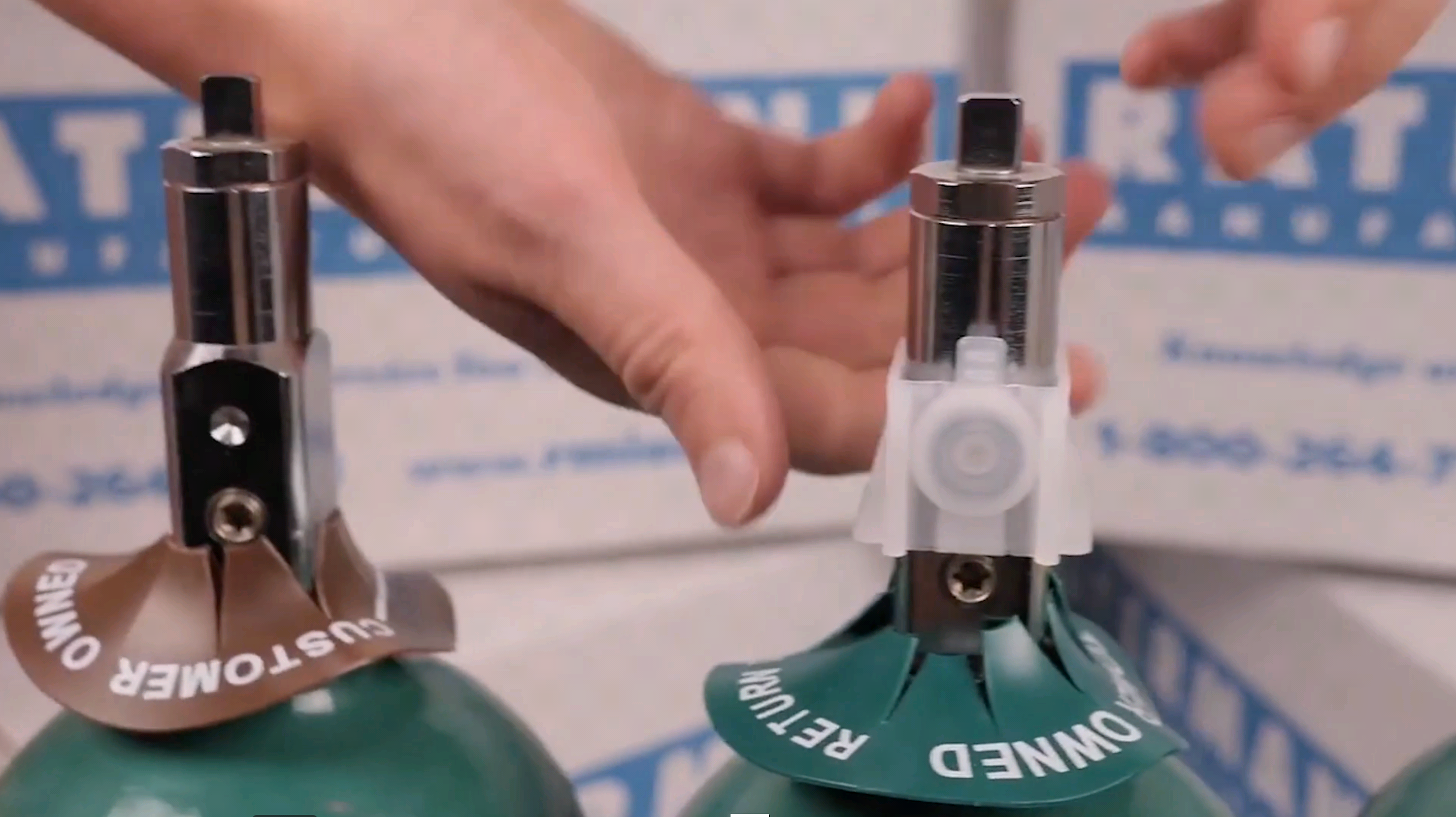A simple way to make your medical gas a contaminant free product

Medical gas must be kept clean, for all the obvious reasons, and medical gas distributors do a great job of making sure that the product they send out to customers is pure and healthy.
Here are 2 tamper-evident tools to keep medical gas pure for your customer:
Option #1 Dust Covers:
What are they are: Dust covers have been around for some time. Basically a square piece of plastic, a dust cover is pushed over the medical cylinder’s post valve after it is filled. To remove the medical dust cover, the customer simply pulls a tab. If the tab is torn, or the dust cover appears to be compromised in any way, the customer realizes quickly that the cylinder has been tampered with and is possibly no longer clean.
Why this works for you: Using a dust cover is the most effective way to prevent contaminants from getting into medical gas. The newest versions of these products from Ratermann Manufacturing, Inc. are made to be a universal fit on medical oxygen cylinders, nitro oxide cylinders, and carbon dioxide cylinders. So, if you fill more than just medical oxygen, Ratermann’s dust covers would be a great fit! Notably, the newest design has an O-ring seal already conveniently loaded into each dust cover for the end user, which prevents the possibility of the seal falling out during transportation.
Option #2 Cellulose Bands aka “Wet Wraps”
What they are: If the name hasn’t given it away, cellulose bands are made of cellulose. Cellulose bands typically come in a bucket filled with liquid. The bands are applied by stretching the band over each medical cylinder post valve and then air drying the cellulose onto the valve. Once dried, the band resembles a wrapper like you might see around the top of a water bottle.
Why this works for you: Cellulose bands are a great option when they work correctly; however, we do not recommend cellulose bands as your first option. The bands are sticky and wet, which makes the handling and application process cumbersome. Cellulose bands have also been known to rehydrate in the rain and to become brittle—and then break—in the sun. Economically, cellulose bands are a solid choice, but this option may require extra attention.



